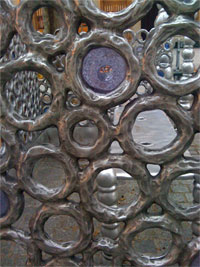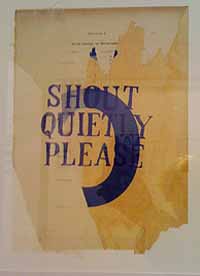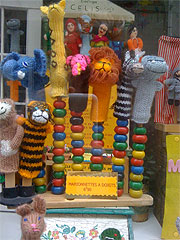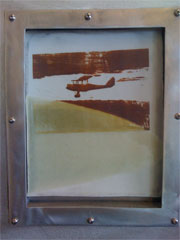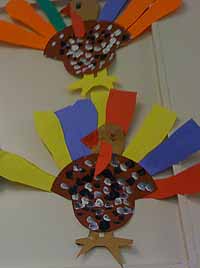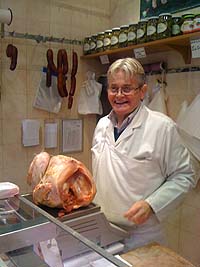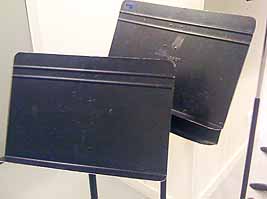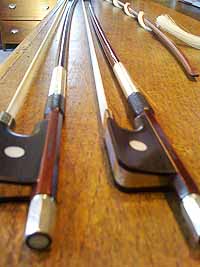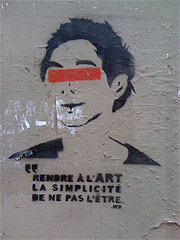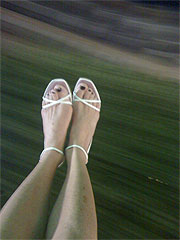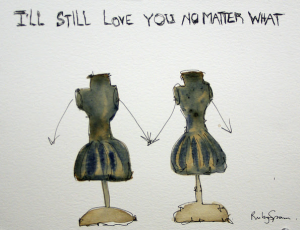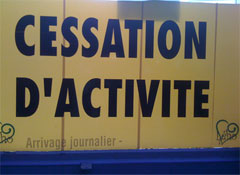Revelation
It didn’t help that I was horizontal, trapped in bed by a gastro that’s been going around. De-facto and Short-pants were out on the last of the Christmas-eve day errands: buying bread for the foie gras, tabasco for the Christmas Day Bloody Marys and paper for the last few unwrapped boxes. Drifting in and out of sleep, I heard Buddy-roo occupying herself around the apartment, singing to her Pet-Shop animals (those Fisher Price toys have, maddeningly, still not yet arrived), pushing the baby-doll stroller around the kitchen island, or shaking the presents already placed under the tree.
maddeningly, still not yet arrived), pushing the baby-doll stroller around the kitchen island, or shaking the presents already placed under the tree.
I was on the mend, but I still couldn’t sit or stand upright for too long. She’d come in every fifteen minutes or so, climbing up on the bed to check on me. She’d brush my hair away from my forehead, give me an I’m-sorry-you’re-sick look; she was caressing me, I imagine, exactly as I have tended her maladies. I was grateful for her quiet company, until she broke the silence.
“Does Santa Claus really come, or is it you who gets up in the night to put his presents under the tree?”
Were I standing in the kitchen, attending to any household task, I could have looked the other way and made a light-hearted of-course-it’s Santa kind of comment to brush it away. But I was pinned like a wrestler beneath her, and she was looking me square in the eye.
“What do you think?” I said.
I’ve been conflicted about the continuation of the Santa Claus myth. The excitement he conjures up is charming, but it’s fatiguing to keep the charade going: wrapping his presents in special paper and making sure no trace is left, remembering which presents are from Santa and which are from us, the required oblique responses to questions about him, his elves and his reindeer. I’m eager for a time when the girls are non-believers and we can exchange the dozens of parcels under the tree for a family trip to somewhere warm with sand, surf and spa. Here it was, the moment to start turning this Christmas train around, and I was chicken.

“I don’t know,” she said, “that’s why I’m asking you.”
Up until now, they’ve both appeared to be believers. Short-pants diligently wrote her letter to Santa and warned her younger sister about the spying elves. When we baked and decorated my mother’s Christmas cut-out cookies, she worried out loud about which one to leave for Santa on Christmas eve. Buddy-roo seemed less devout. It was harder to get her to scribe anything to Santa; she even seemed a bit aloof. But then she told De-facto that “the best thing about Christmas is you can ask for whatever you want and it doesn’t cost anything.” She compared this with her birthday, when you didn’t know what you were going to get and somebody had to pay for the presents. So, it seemed, she still believed, too.
“Santa is the spirit of Christmas,” I told her, “he represents the magic of giving gifts without thinking about what you get back.”
I was stalling. I wanted her to find out from someone other than me, like a classmate or a cousin. Perhaps that’s what had happened and now she was coming to me for the ultimate truth.
“But who puts the presents from Santa under the tree?”
Her question was too direct. It was time to answer. Besides, I justified, this might lay the foundation for the dialogue between us in the years to come; how I handled this could be a precedent for future honest answers from her.

I told her. The truth. Then I braced myself for her response: a backlash of angry betrayal or tears of disappointment that all this magic was just a myth.
“Really?” Her eyes widened. “It’s you?
“And Papa, too.” I had to give him some credit.
She inched herself up closer to me, her smile widening. She threw her arms around my shoulders.
I wanted to say: You’re not mad at us? Instead I said: “It doesn’t mean that Santa doesn’t exist. He’s in all of us, at anytime of the year. He just comes out more generously at Christmas.”
“Who eats the cookie we leave out?” she asked.
“I do.”
“And the carrot, for the reindeer, who eats that?”
“Papa.”
“How come you get the cookie?”
“That’s how we roll.”
Now I wondered about Short-pants. She’d been doing such a fine job of believing – almost too good a job for her age – that I’d started to think maybe she was playing along to humor us. I did this: for three years I was well aware who was really putting those big-ticket gifts under the tree, but I didn’t fess up. The booty Santa brings is always more interesting. How do you think I got so many of those Fisher Price toys?
I asked her if Short-pants still believed.
“Yes,” she answered without hesitation. “She still believes.”
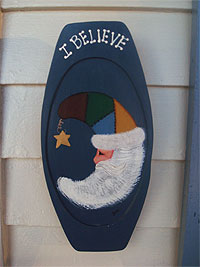
“Will you give me a present, then?” I asked. She nodded solemnly, to match the tone of my request.
“Please. Don’t. Tell. Her.”
I remembered how crushed she’d been, running to her room in tears when she learned that the Bastille Day fireworks weren’t really in honor of her birthday, something De-facto and I had perpetuated as a charming story – we thought – as the fireworks in Neuilly-sur-Seine, where she was born, started just a few moments after she was born.
“At least not until after this Christmas.”
Buddy-roo promised, and it was a promise she kept. In fact, she played along so well with the entire ruse that I realized that I’ve set no precedent whatsoever for any honest answers in the coming years. But we had peace at Christmas, in a festive kind of way, which is what I needed, and what I wish for all of you for the remainder of the holiday season.

